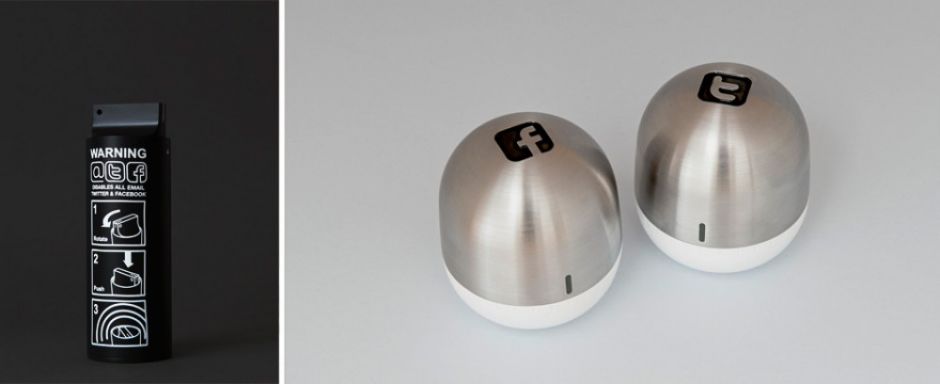Digital Downtime
It would seem, according to a number of new surveys and research reports, we are as dependent on our devices - whatever content we might be accessing through them - as an addict might be to tobacco.

It would seem, according to a number of new surveys and research reports, we are as dependent on our devices - whatever content we might be accessing through them - as an addict might be to tobacco, alcohol or (just maybe) crack cocaine. Almost everyone who uses a mobile phone or tablet or laptop will have at least some anecdotal evidence that shows how the irresistible compulsion to update, upload, download, check-in or simply check their screens, can cause problems.
Car-crashes at worst perhaps, but then there’s the lack of sleep as you check Twitter into the night, relationship breakdowns as partners ignore each other to answer that one, non-urgent email, or even just the ‘nakedness’ and vulnerability of being without a phone when it’s been accidentally left at home. While the sight of couples engrossed in their devices and pointedly not into each others eyes at restaurants is all too familiar, a Retrevo study found that 11 percent of people under age 25 feel it’s OK to interrupt sex to check an electronic message. But take the phones away and people will get fidgety and irritable - withdrawal symptoms are much the same to that of coming off the coffee.
Switching off to switch off
The hospitality industry has been the first to embrace the idea - positing the notion that to be uncontactable could be seen as a luxury proposition. The Renaissance in Pittsburgh in the US offers guests a ‘Zen and the Art of Detox’ package: your laptop, cell phone, and all other digital devices must be surrendered upon check-in, and will be held for you until your departure. The television, phone, and dock station are be removed from your room and replaced by actual books. There are many more examples - detoxing from technology is all about relaxing, spending time outdoors – and doing the things you never seem to have the time to do, and it seems we need a little help.
Speed and the way tech is evolving is based on the masculine trait of being faster and quicker. I think there’s a counter movement that’s starting to question this." Jack Mama, Philips Design
Over in Sweden, it might seem counter-intuitive, but in a bid to give the customer what they really need/want, telecom provider Telia now offers a free download for users to disable the internet at home, and has created ‘internet-free zones’ in various parts of the country.
Slowing down technology
During the London Design Festival 2011, the Slow Tech exhibition - co-produced by Protein in our 18 Hewett Street gallery - showed the results of an experiment as to what designers might think up given the brief to encourage digital downtime from a product point of view, rather than a service one. From an iPad powered terrarium (like a live tamagotchi designed by Sam Wilkinson, who explains ‘My approach wasn’t to try and think of products that stop you from using technology, but encourage you to just spend a bit of time away from your technology’) to an app that gives you little electric shocks to help you wean off from addictive behaviour, the approaches used both carrot and stick, as well as creating a whole new awareness around the subject that some would say is half the battle.

Jack Mama, creative director of the Probes (far future research initiatives) programme at Phillips thinks people are beginning to move away from the glowing rectangle in order to lead a more active, fulfilling lifestyle. ‘Broadly speaking, speed and the way tech is evolving is based on the masculine trait of being faster and quicker,’ says Mama. ‘I think there’s starting to be a counter movement that’s starting to question this.’
Taking as his starting point the idea that we are becoming more and more distanced from ourselves and nature, increasingly experiencing the outside world via a little backlit screen, his team has devised a whole host of products that bring us back into contact with the unpredictability of the natural world. Matt Ward, lecturer in design at Goldsmiths, meanwhile makes the point that perhaps it’s the speed of consumption that is the problem - the rate at which we are digesting means we are failing to get sufficient quality from our life experiences. His recent project 'Slow Photography' explores how we can look at slower and more considered processes that move away from instant and disposable point and shoot.
‘I worked out a lot of the products in the show would be about removing yourself from the process. I’m taking it in a slightly different direction... The whole culture of photography has changed dramatically. But it’s also how we consume - from Flickr to Facebook - we look at photographs in a different way now.'
Ward describes a recent holiday: ‘We were thinking of going to see the world’s oldest olive tree, so we looked at it on Flickr, and it looked a bit shit. So we thought: “Nah”. But then we thought, “we’re being terrible, let’s just go and see it.” And it was wonderful.’
And what of the future? Will the omni-present screens that we’re drawn to like moths to a lightbulb disappear anyway? Ward thinks not. ‘The idea of a seamless environment where computation happens around you without screens started in 1980s. But that hasn’t happened,’ he says. ‘Instead we’ve become more drawn to these little rectangles.’ At the same count, do we even want them to? ‘I’m skeptical about how these things disappear into our environment - I don’t want my wallpaper to tell me what time it is. We like things. We like the boundaries that objects give us.’
Until we actively decide to re-learn the will-power to resist the call of the screen the market is open for both products and services to help us.


